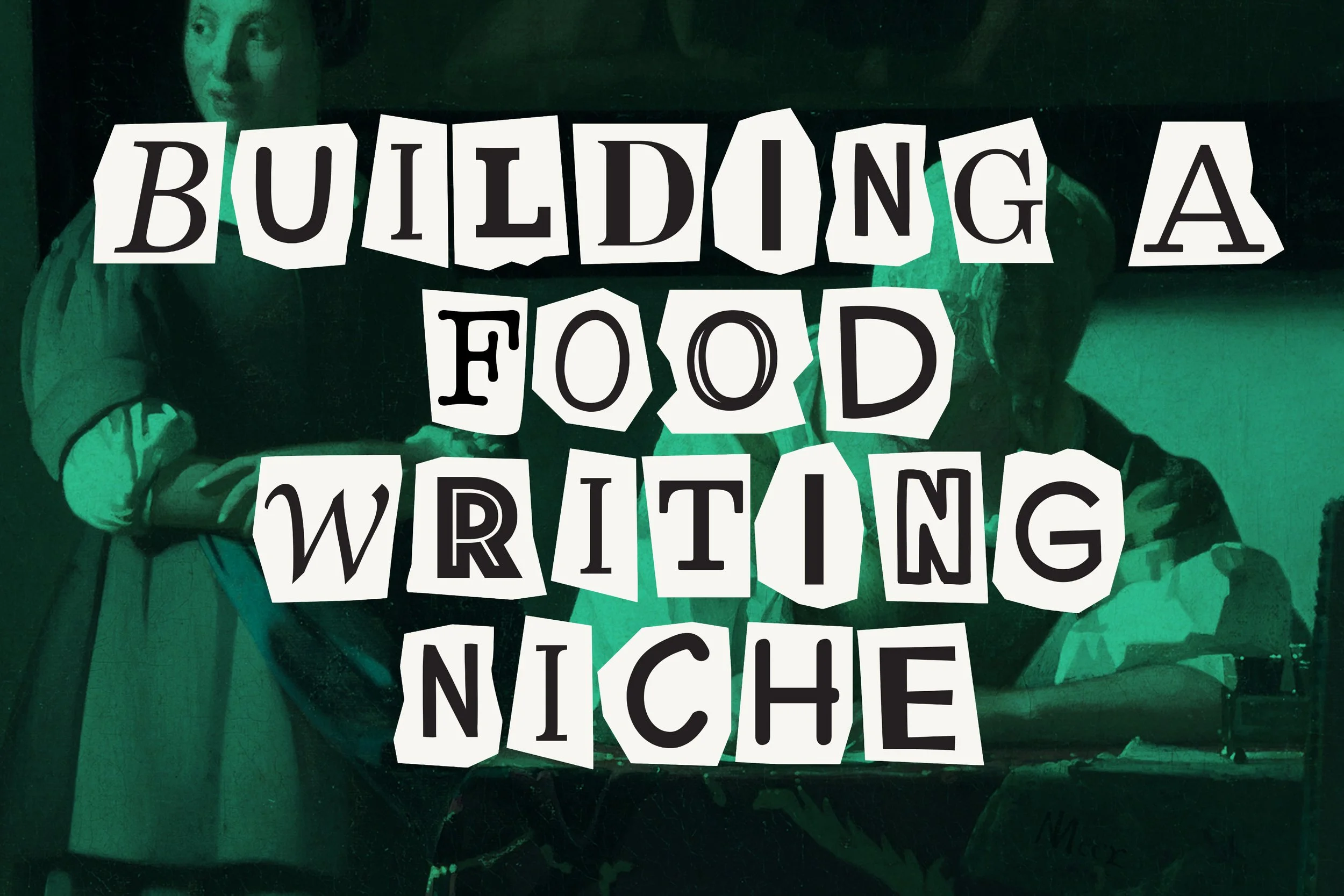Building a Food Writing Niche: How to Stand Out from the Crowd
Given the vast amount of online food content out there, not to mention the vast amount of food writers producing it, there can be something of a struggle in standing out from other creators vying for the same space.
This is why generalists, unless they’re extremely well-connected, don’t tend to get too far in this industry. Besides, niching down has way more benefits – it can help you build a loyal audience as much as it can establish you as a go-to expert that editors fall over themselves to commission.
Here’s the thing though – it’s no longer good practice to have just one niche.
Why? Well, ask basically any content writer in some way involved in the food and drink industry during Covid. Any writer, for example, like me. In March 2020, and pretty much overnight, I lost more than half my regular work because interest in hospitality – a niche within food and drink I’d successfully tapped into for quite some time – basically ceased to exist.
Fortunately, it wasn’t the end of the world – I still had other niches, like sustainable farming, that I was interested and already actively engaged in. Without those other interests though, I’m almost certain the career I had and the lifestyle it afforded would have collapsed just like that.
So, when we talk about ‘finding your food writing niche’, what I actually mean is finding several topics which can, in culmination, be that ‘niche’.
Finding your perfect food writing niche
Finding a niche within the food and drink industry is usually pretty straightforward. The best places to start are with any prior experience or interest you have within a certain area – are you a trained chef? Recipe writing may well be your bag. Perhaps you’re a certified nutritionist? Health magazines and the content therein could be your focus.
That said, prior experience or interest doesn't necessarily have to be already relevant to food. Maybe you’re a keen historian. In which case, there’s an endless supply of stories within food history waiting to be told. It could be you’re more curious about the environment, which could well lead you down the path to farming and more specifically nature-friendly farming.
Ultimately though, as long as you feel you have enough enthusiasm about a topic to make it into something you’re content to read, research, and write about on a regular basis, there’s no reason why you can’t adopt it into your repertoire.
Developing your food writing niche
Developing your niche comes from knowledge and practice. Simply put, that means reading topics within that niche, as well as writing and pitching stories relevant to them.
This process starts by identifying magazines, newspapers, blogs, newsletters – and even other media like podcasts and Twitter accounts – that in some way speak to your niche. Reading these regularly will give you benefits two-fold: one, in starting to become an expert in a niche; and two, in getting to know the publications that you could ultimately be targeting in order to land paid writing opportunities.
Evolving your food writing niche
As I mentioned earlier, these days it’s unwise to stick to exclusively one food or drink niche. Some industries – those within the realm of food being little exception – are volatile, and it doesn't take too much for a sector to tank with little or no notice, causing there to be little interest in your expertise either at that particular time or for the foreseeable future.
As a result, it’s a good idea to have two or three niches within your remit. This doesn’t have to happen immediately, and could in fact develop more organically as you begin to explore other niches that might be more of a primary consideration for yourself.
A good way to think about it is to consider what niches are adjacent to those more obvious to you. If you’re a grower, for instance, naturally the realm of farming and the writing pertaining to it will be of interest to you. But then so too could the niches of supply chains, food sovereignty, agroecology, and therapeutic horticulture.
Which food writers have developed in a well-suited niche?
For most if not all successful food writers, landing on a particular niche or two has basically ensured their career for the rest of their life. Jay Rayner will never not be known for restaurant criticism, Yotam Ottolenghi has been immortalised as the guy who’s recipes you probably cook from, and Alicia Kennedy’s writing will forever be synonymous with food culture and politics.
Some other food writers that spring to mind:
Rachel Roddy for her Anglo-Italian perspective on cooking
Jonathan Nunn for restaurants representing a particular culture or diaspora
Felicity Cloake for perfecting a certain dish
Larissa Zimberoff for how the intersection of food and technology
Rebecca May Johnson for a simple, everyday outlook on eating and cooking
Chris Smaje for espousing a small-scale agroecological farming revolution
Lizzie Collingham for food history within the context of the British Empire
Fiona Beckett for food and wine pairings
Emily Nunn for… salad (and a devastating sense of humour)
More detailed guidance on finding your perfect food writing niche comes as part of my course, So You Want to be a Food Writer? also including 1-to-1 tuition, and a guarantee that you’ll come out as a paid and published food writer – or your money back.
Immediate access to the lessons, resources, and 1-to-1 support that'll help you become a professional food writer.
